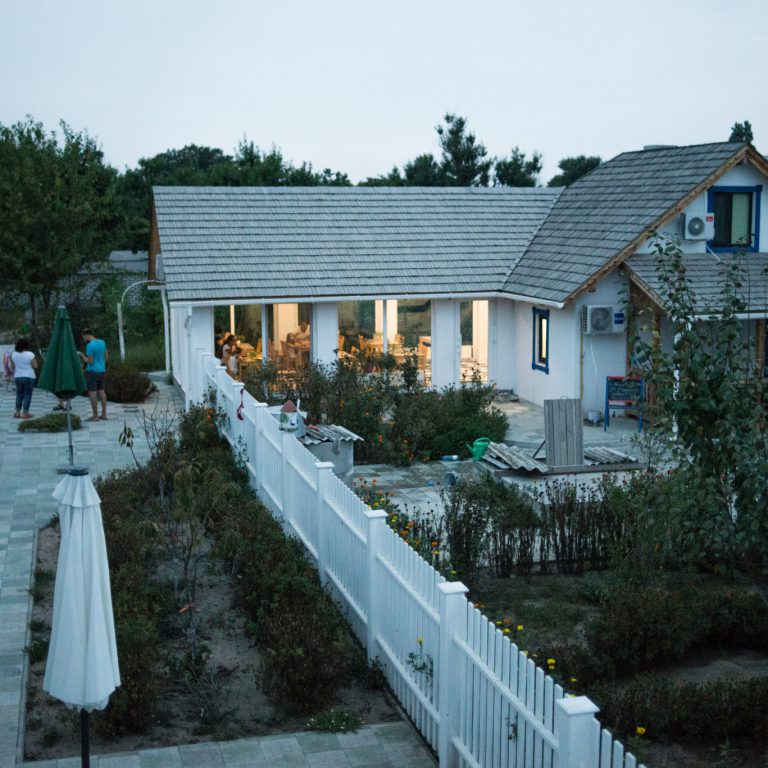In southern Ukraine, on the Arabat Arrow Spit, there is Strilkove village, which is washed by Azov Sea on the east and by waters of Syvash on the west. This is the most distant populated place of Kherson region, which borders with the occupied Crimean Peninsula.
The Arabat Arrow encompasses a great variety of mineral springs and considerable supply of brine and therapeutic muds. According to one theory, the name of the spit derives from the Arabic word “rabat”, which means military post. The remarkable fact is that right there, at the end of the Arabat Arrow, there used to be a military post which served as means of protection of Crimea against Zaporizhian Cossacks, who would take over Tatars’ horses.
Now, The Arrabat Arrow is a borderline again. The asphalt road on the spit ends between neighboring villages Shchaslyvtsyve and Strilkove. In Strilkove, there is already no asphalt.

The resort places in Strilkove are recreation facilities that have been there since the soviet times. Nevertheless, the new ones are also appearing. In 2014, at the beginning of military conflict in eastern Ukraine and the annexation of Crimea, despite the fear that the military actions would reach this place, there appeared the first sadyba (recreational estate) of green rural tourism “Agrus Azov”. We stopped by there during the expedition across Pryazovia and met the founder of the estate – Oksana Chornobryvtseva, who comes from Kyiv.
Sadyba
Oksana bought and remade the village house that was built in 1964. Instead of the typical house and summer kitchen, now there are nine guest rooms, a dining room, and a patio. Moreover, there is a vegetable garden, a henhouse and a vineyard.
In the yard, there is no gooseberry yet. However, Okasana says that she named her estate “Agrus Azov” (agrus – Ukrainian word for gooseberry – ed.) because she really likes this berry. In the garden, there are some greenery and vegetables. The vineyard has been there since it belonged to the former owners of the estate. The products are mainly industrial. They are suitable for home-made wine:
— I have never done it before, but we want to try. Probably, we will not be able to produce large amount of high-quality wine, but we are sure it will be an interesting experiment — says Oksana.
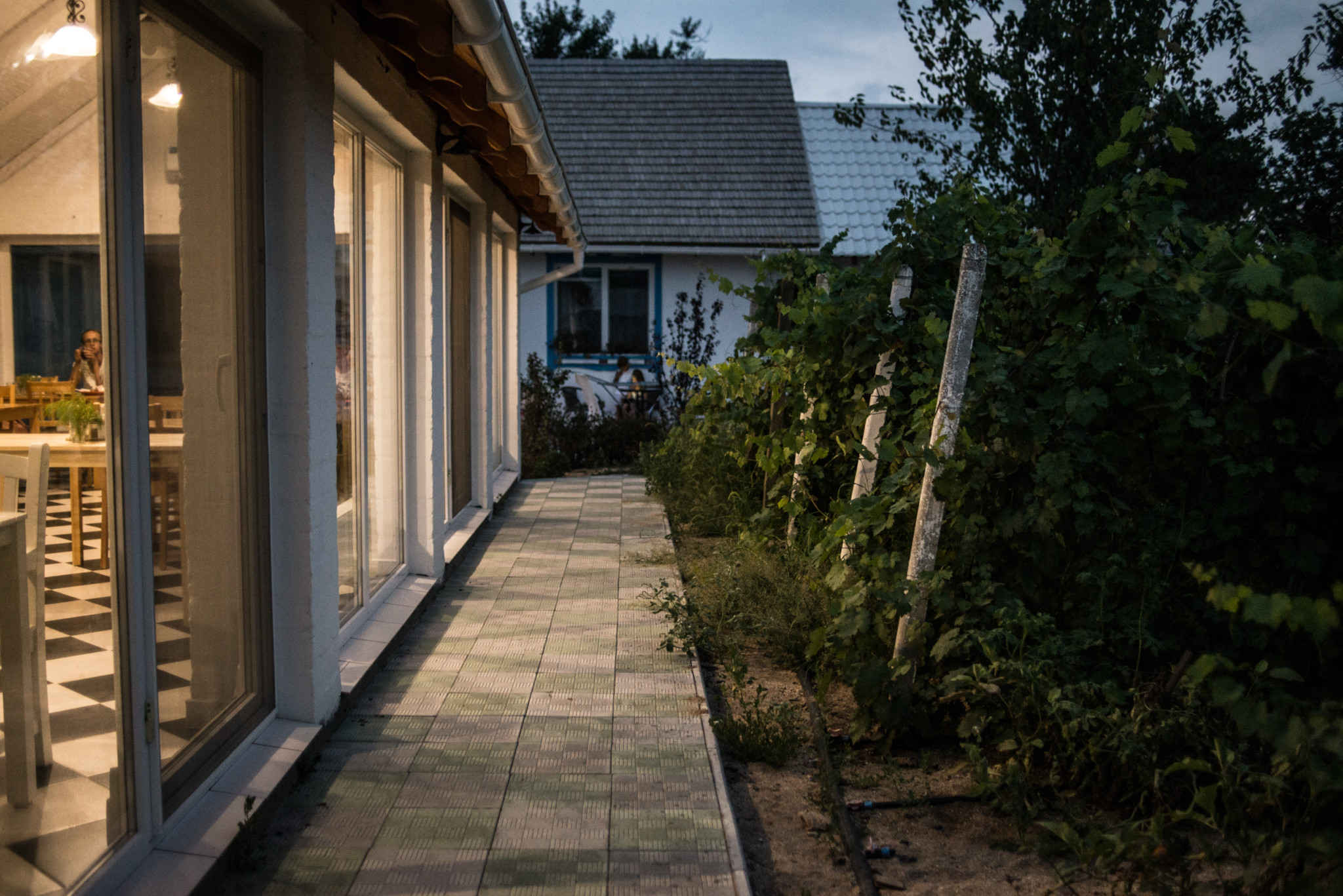
The premises of estate cannot accommodate a lot of people. Anyway, large number of visitors is not the priority in this case. The hosts’ aim is to create a cozy homey atmosphere so that they could pay attention to everyone.
— I like it when our guests get acquainted with each other, and then go on trips or to the seaside together. Children get on very well. They always know how to entertain themselves here.
The estate is made of organic materials. Oksana says that it all could have been done in much shorter time and with less expenses, but they wanted to do it “for soul”. Buildings are made of local and Crimean shells and faced with lime. The roofs are covered with fir tree shingles. The furniture is mostly made of wood.
The host’s love for white color is noticeable. There is plenty of it. For Oksana, this is the color of blank sheet where you can write down or paint anything you want depending on your mood. It also evokes associations of freshness, purity and rural comfort:
— In childhood, I loved to stay at my grandma’s in Zhytomyr region. She had a traditional Ukrainian house – white parget hut with blue windows and doors, which was covered with straw roof. It seems there was nothing special, but it was the only place where I could really rest. It was a peaceful place where time stopped.
This is the atmosphere Oksana tries to create in the modern estate.
From time to time, they hold workshops, such as clay or dough modelling, twinning of protective charms with straw, etc. The audience is not large, but the organizers believe that such atmosphere is conducive for creating great stuff.
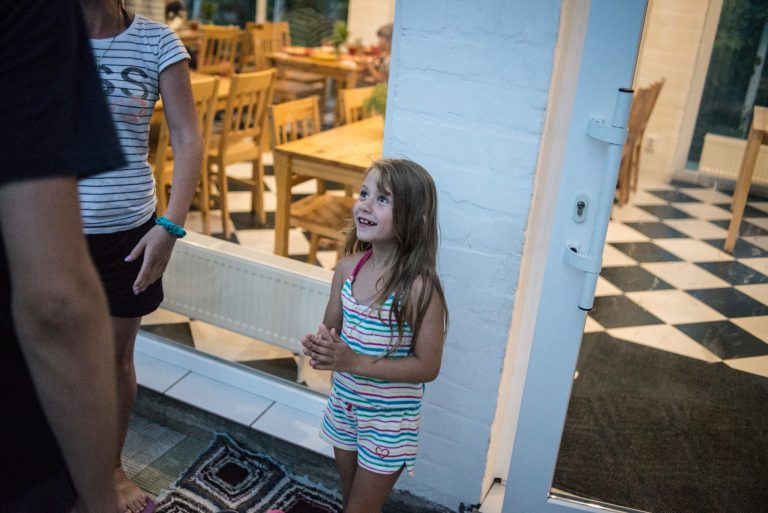
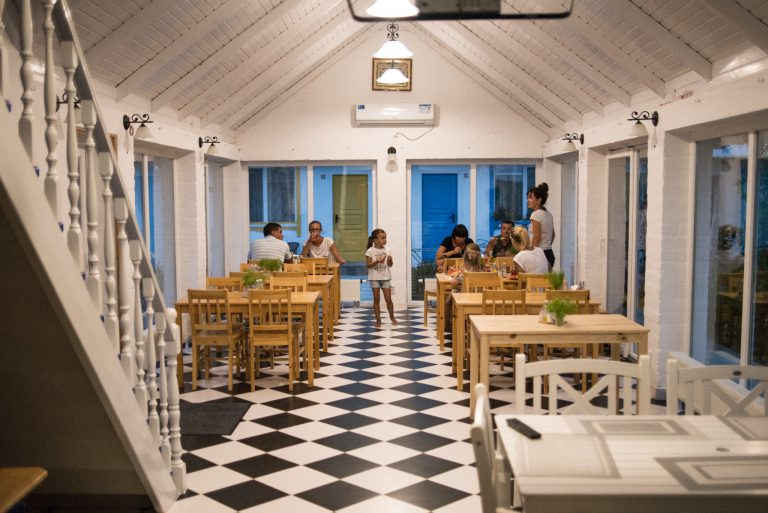
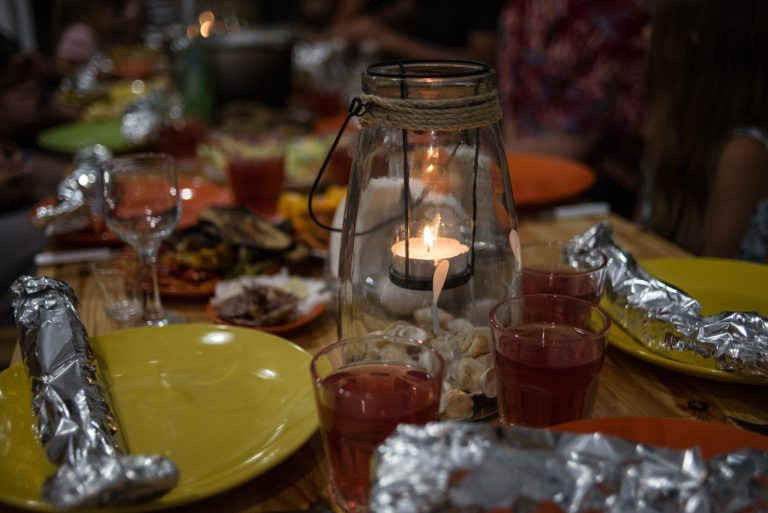
slideshow
The hosts try to evoke visitors’ interest not only for the sake of their business: in such a way, they want to prolong the vacation season across the whole Arabat Arrow, to get rid of “seasonal prevalence” stereotype, which has always been a reference point for Ukrainians who travel to sea:
— In summer, after having rest at seaside, there is no time for other activities. In our case, we have visitors who come to stay for a weekend or on holidays no matter what season it is. They come for thermal springs, hunting or fishing. It is important to have plenty of interesting activities on offer: workshops, exhibitions, concerts. We engage local residents in these activities, so that they have extra work, there is a demand for their talents, and visitors are satisfied.
The visitors of “Agrus” can partake in agritourism if they want. Usually, children collect eggs, some adults cut grapes or water vegetables. Nevertheless, Oksana says these activities are not popular, as people come here when they are tired of the city and they spend all their energy to have rest at the seaside.
Oksana
Oksana lives with her husband in Kyiv, where they manage their main business — call-center. However, she has been spending more time in Strilkove recently, and her three sons help her whenever possible. In general, they mostly employ members of their family, friends, and local residents:
— When asked about employees, I can’t even use the word “employ”, because they all are my assistants.
The family got the idea and inspiration for creating such place from their travels. When traveling in Italy, Croatia, Portugal and Spain, Oksana likes to stay at similar estates. She believes that such kind of vacation is best for those who spend most of their time in big cities. Silence, peace, and comfort strongly resemble the natural setting.
For Oksana, this hobby turned into her occupation.
— It is believed that if you do something you really like, you will never have to work again. So, it is hard to work if you do not enjoy what you do.
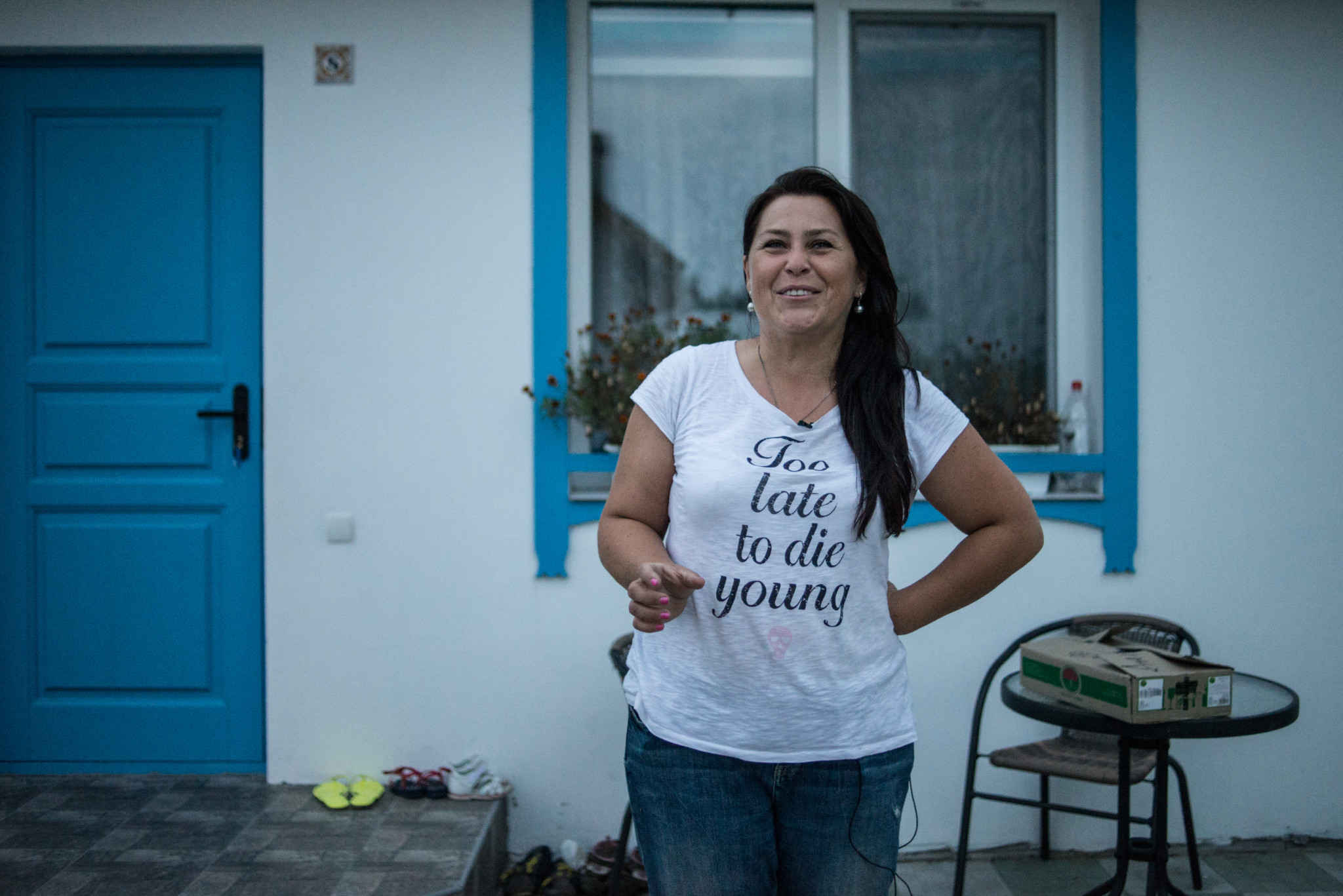
Oksana used to work in PR, she used to go on business trips to various regions of Ukraine. She visited the Arabat Arrow many years ago, but she didn’t find a comfortable place to live then. During her next visit with her family, they found a place to stay for vacation:
— Young specialist would come here with their families. This is what the former community looked like.
The former owners of the estate – a married couple from Volyn – got this house right after their wedding:
— Back then, the house was unfinished. Her (former owner’s— ed.) husband was great at managing household. Everything was done in a decent way, so that it would last for many happy years.
— You know, the first impression of the house you get lets you know whether it is suitable for you or not. When I entered the yard for the first time, I knew I would come back. I knew this place would become my home.
Oksana says that at first the fellow villagers treated her idea with caution. Probably, they simply didn’t know what to expect and worried if they would be disturbed. They did not know what their neighbors would be like. However, now she is in friendly relationships with the local residents:
— Many people help me with some advice. I am happy to have neighbors who make me feel good after simple exchange of greeting, because I do not have any roots here: no acquaintances, no classmates, no relatives.
2014. The Beginning and the Roadblock
Meanwhile, as they were building the estate in 2014, plenty of military equipment was being delivered on the spit as well as roadblocks were being established. There is a direct track road from Strilkove to Crimea. Moreover, there is a gas well to the south of the village. Oksana remembers that when one goes through such terrible events, it is impossible to perceive them as reality:
— At that moment I decided to get busy, to get my mind off those things. I wanted to stay in the state of mind that lets you act right in such conditions.
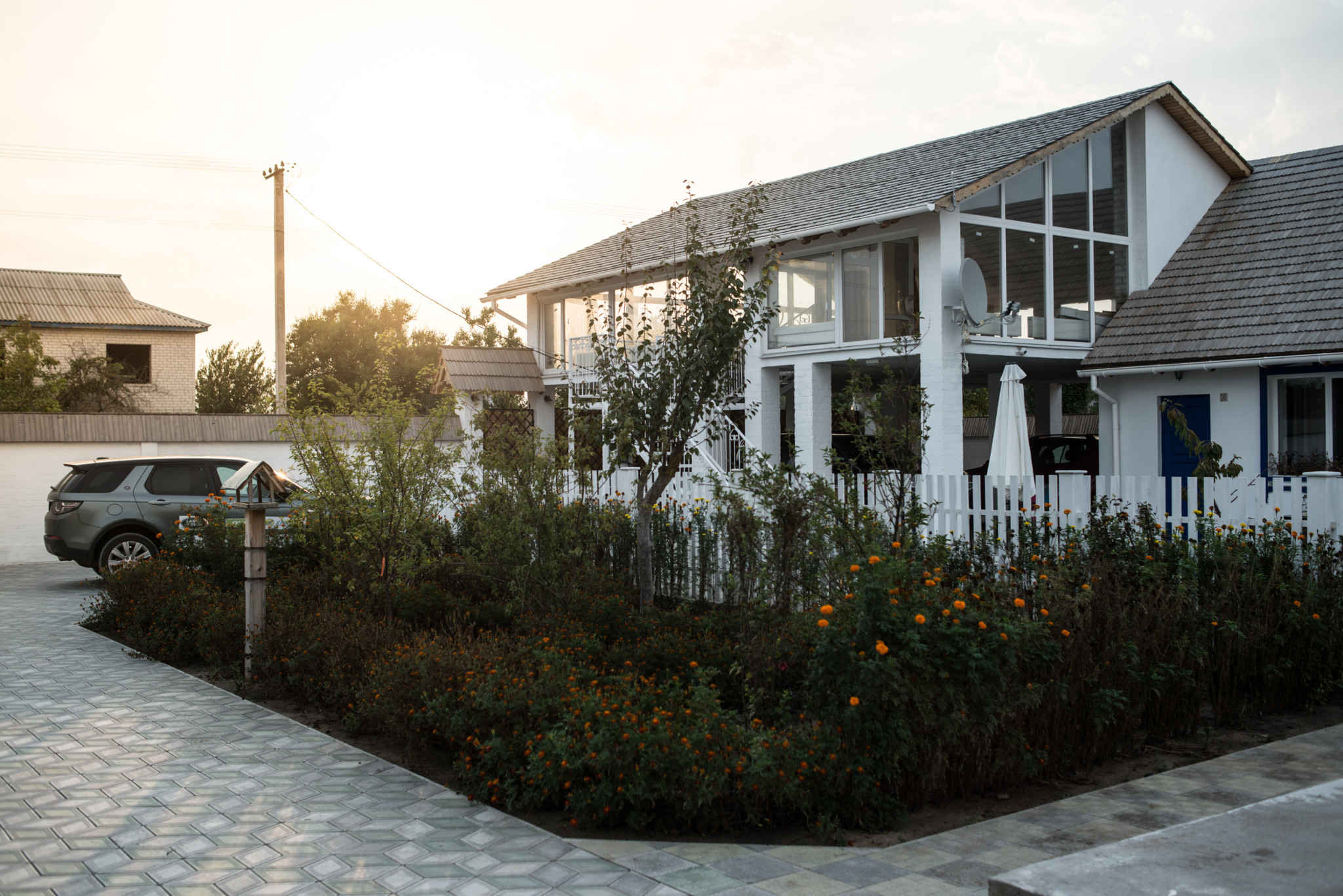
It was interesting to observe how children reacted at that time. When Strilkove became crowded with military men, military equipment, despite the daunting news, children still enjoyed life. They happily welcomed Ukrainian military and armoured vehicles, and they felt protected:
— I tried to focus on that. Seriously. Back then, the Ukrainian army wasn’t treated in the way it is now. It was the time when it became clear who is who.
Rural Tourism as a Source of Income
Oksana Chornobryvtseva has not seen any estates similar to “Agrus Azov” on the Arabat Arrow. She thinks that her project is unique because its aim is to keep the positive image of Ukrainian village and village as a recreational resort:
— I feel sorry when people treat this phenomenon with prejudice. When we put a sign at the entrance “The Estate of Rural Tourism”, some local residents looked at us with pity, implying that no one would come to a place with such name, and if it said “Luxe” or VIP it would be a happier story… Anyway, my goal is to unite people who believe in village, in its life, in the fact that villagers can provide employment for themselves and increase their standard of living, relying solely on themselves.
— To my mind, building a house is one of the greatest things you can do in life. I was frequently asked whether we shouldn’t better leave rather than build a house. Sure, I was frightened. In such cases, I rely solely on intuition. As they say, you should always follow your heart.
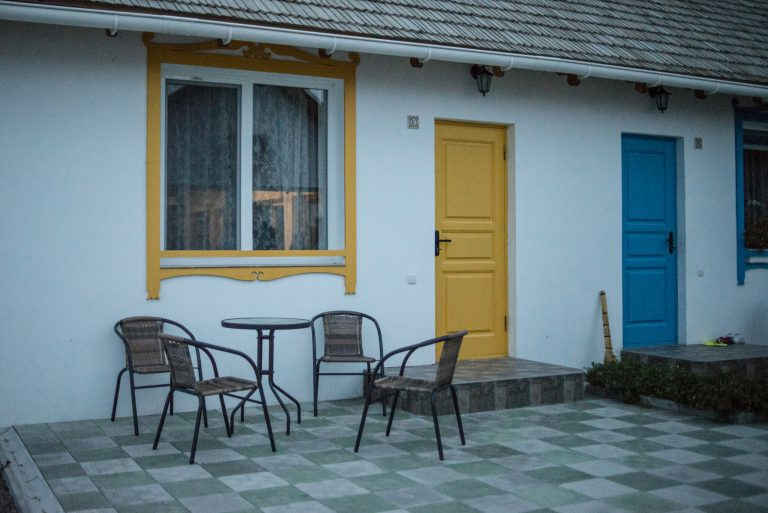
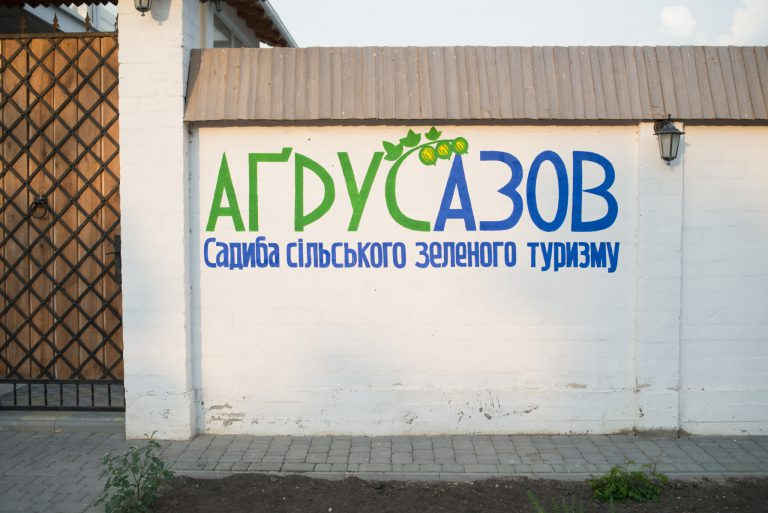
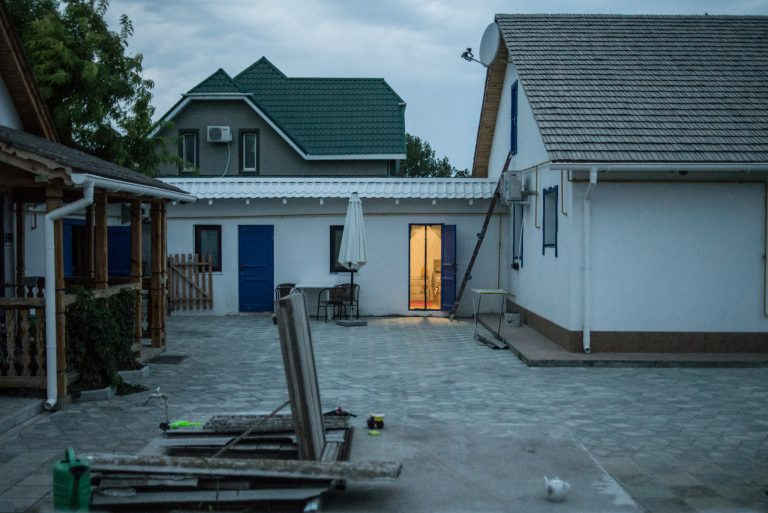
slideshow
Oksana thinks that rural tourism has a great potential. First of all, great number of rural residents are not employed. Most of the year, people just remain registered at the employment exchange office and get minimal payment from the government. But this is the dead-end road, because wealthy people make up wealthy state.
—It is partly because more than 70% of population, if I’m not mistaken, have never been outside their region, not to mention being abroad. Let’s say, we still feel the consequences of Soviet Union.
Rural tourism provides legal means for additional or even main income. Such type of business is extremely popular in many parts of the world. In Ukraine, it is only at the initial stage of development:
— It is just undervalued potential. I mean, it is not cool. Such place (estate in the village — ed.) — it is still considered not cool.
Talking about the development of rural tourism, it is not always about big money that is needed. It is possible to use available resources, but it will cost much effort. Self-employed villagers provide for themselves and also contribute to the local budget. Thus, step by step, the infrastructure is developed and the tension in society is decreased.
However, nowadays, it is not enough just to rent a bed. It is essential to have additional services on offer. The competition will increase and visitors will not come just like that. They will choose something where the entertainment is more interesting, the food is better, the atmosphere is more peaceful, the place looks prettier, etc.
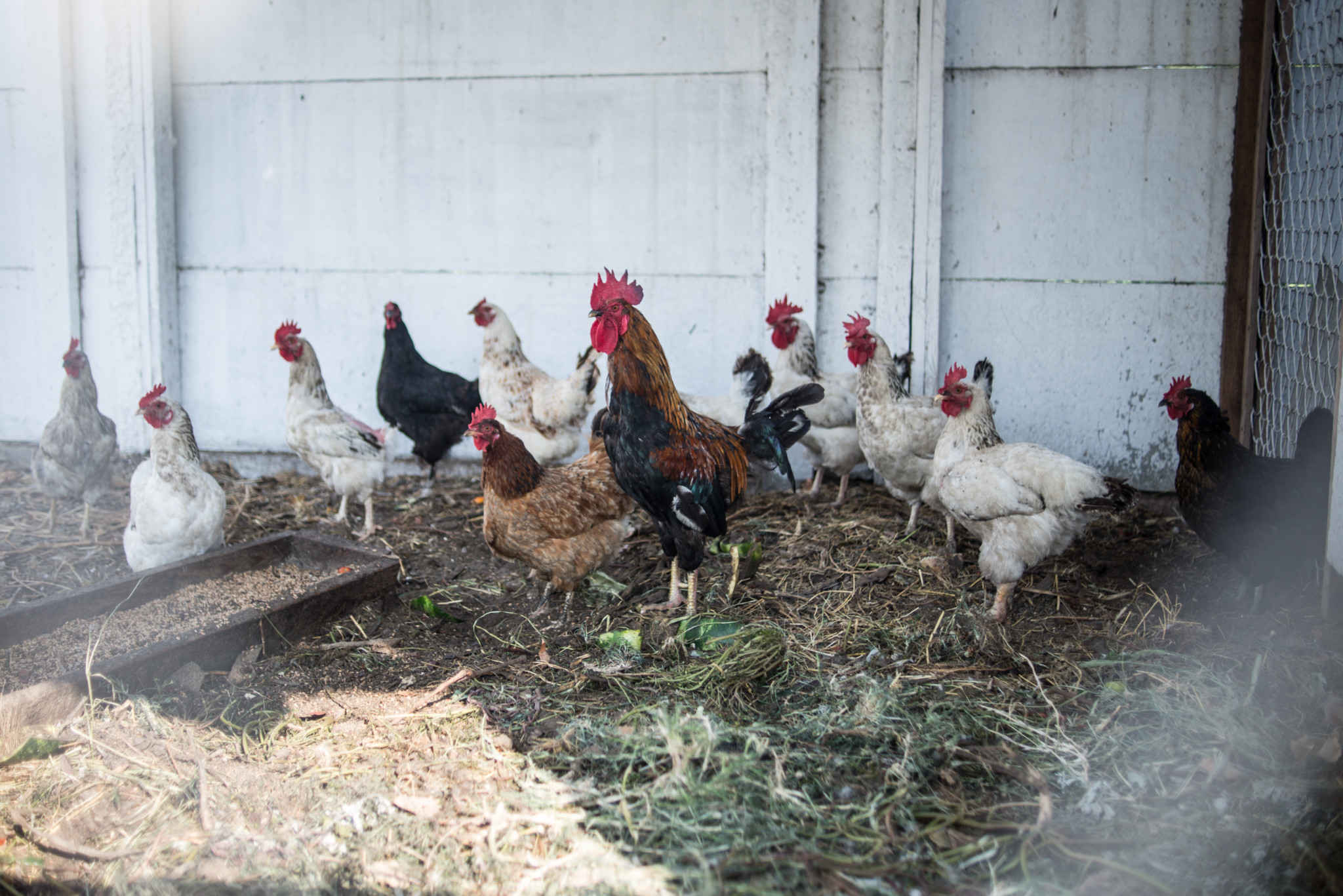
Now, the need for service sector development is urgent. It is important to provide people with professional knowledge in this sphere. Oksana says that nothing like that is done in that region, but there are successful examples in other regions of Ukraine.
In 2016, Oksana arranged the seminar on rural tourism for Henichensk district. They invited the owners of estates to exchange their experience and also a lawyer who was telling about Ukrainian law in that field. Oksana has in mind to make that seminar an annual event.
Arabatka Brand and an American in Strilkove
The estate and the seminar are not the only local initiatives of Oksana Chornobryvtseva. In summer of 2016, she announced an unofficial competition for creating the Arrabat Arrow brand — a logotype and tag line – at her own cost. These elements constitute an invaluable part of any successful brand, especially when it comes to tourism. However, there has been nothing like that before concerning the Arabat Arrow. Based on the results of competition, a special brand-book has been designed. There are plans to produce and sell promotional souvenirs with the logo-sea direction sign.
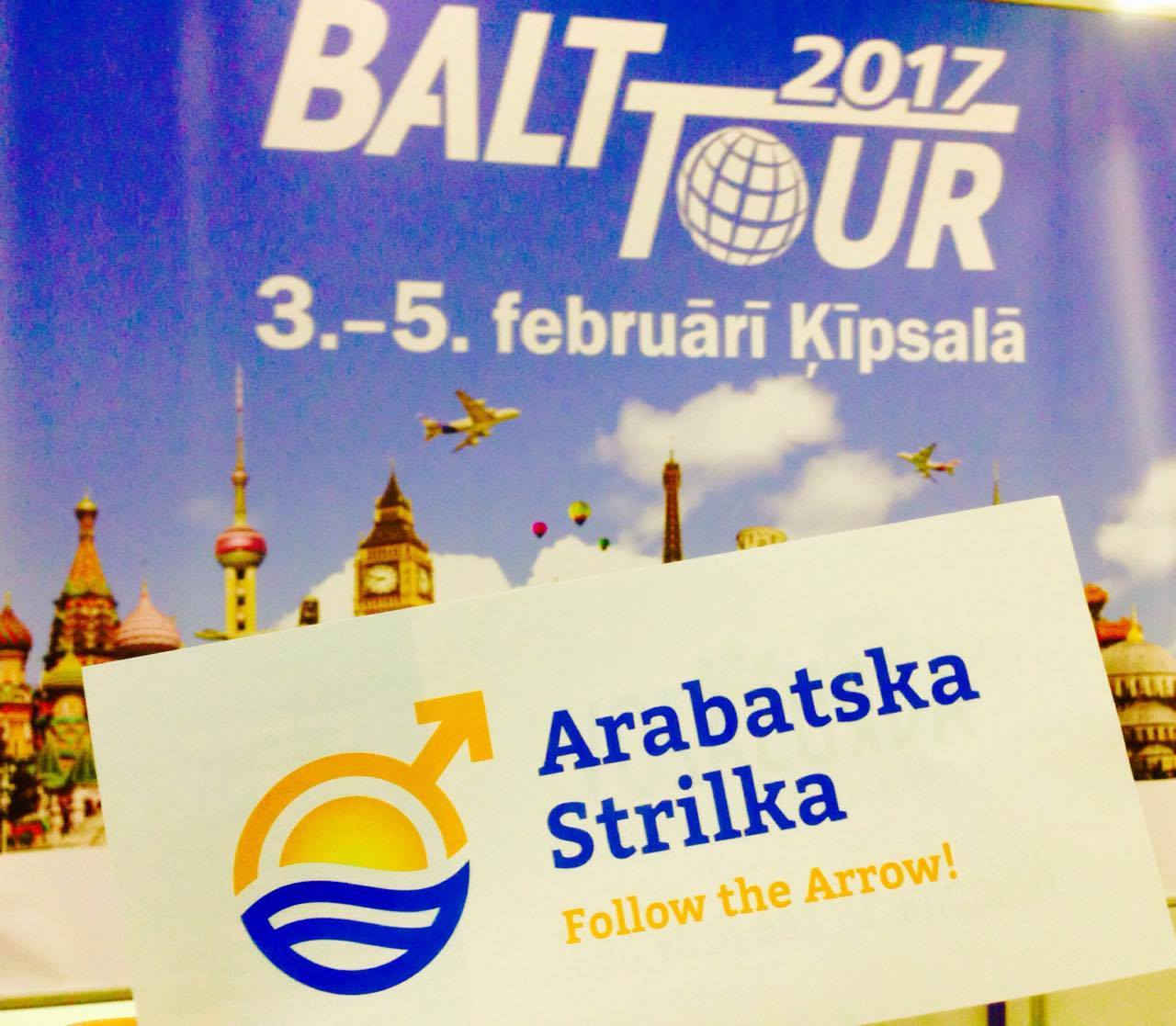
In 2016, Oksana got to know about the national program of learning and promotion of foreign languages in Ukraine Go Global, and in particular about Go Camp –where volunteers from all over the world come to Ukrainian schools to teach children.
In 2017, Strilkove school applied to participate. Among the requirements, there were tasks to present the region, its uniqueness, and also find a family that would host a volunteer, provide him/her with accommodation and food. “Agrus Azov” estate became such a place.
Strilkove welcomed a volunteer Carlos Moretti – a Philology student from the Florida University, USA. His syllabus was designed in such a way so that children would listen to native English speaker and overcome their own language barrier. At first, there were supposed to be classes for 25–30 students in the summer camp, but in fact 86 children visited classes. The village council also helped with resources, as all children needed to be provided with food.
Following the Successful Examples
Oksana believes that rural tourism has plenty of successful examples worth following. In Ukraine, it is Transcarpathia, Ivano-Frankivsk and Chernivtsi regions:
— How can you not do it if there is a demand for it? Moreover, Transcarpathian residents did an amazing job – they have visitors all year around.
One of the successful example abroad is Curonian Spit (Lithuania). Oksana is planning to meet with the representatives of local tourism business and establish the exchange of experience:
— Although the Baltic Sea is cold, there are no thermal springs or therapeutic muds, they manage it there really well and we can learn from them a lot. There is also Hel Spit in Poland. Our people just need to see such successful examples.
How We Shoot
As we can see, the initiatives of individual people are extremely important even in nationwide terms. On our way to Strilkove, we also came by Askania-Nova with its unique music school and Hryhorivka with the one of a kind historic museum. Get to know more in our videoblog.

